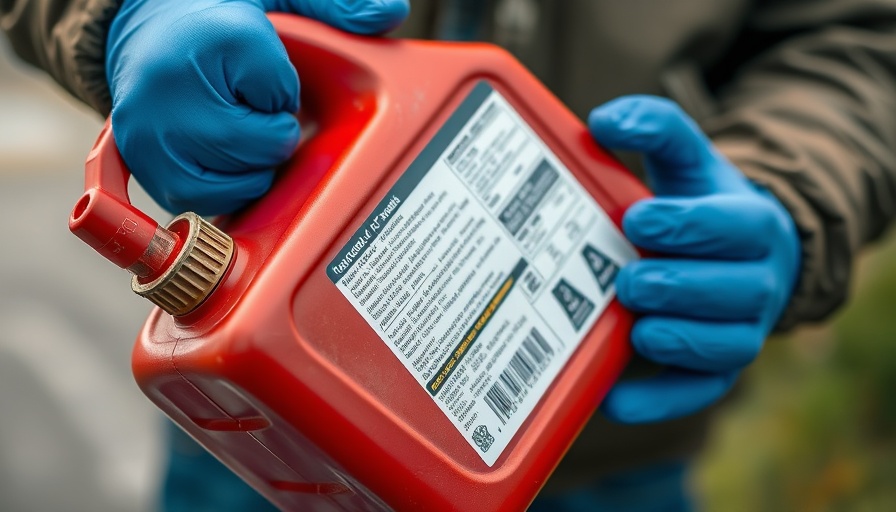
Understanding the Risks of Improper Gasoline Disposal
When it comes to disposing of old gasoline, it's crucial to recognize the serious implications of doing it improperly. Gasoline is not just a volatile fuel; it's also a hazardous substance that can cause environmental damage and health risks. Dumping old gas down a drain or in your backyard might seem like a simple solution, but it can have dire consequences. Even a small spill can contaminate groundwater, harming ecosystems and local wildlife. Moreover, gasoline vapors are highly flammable, posing an explosion risk that can endanger your home and the homes of those around you.
The Legal Framework Surrounding Gas Disposal
Some may think of legal repercussions as negligible, but experts warn against that mindset. In the United States, all states classify gasoline as hazardous waste. Therefore, local laws tend to be stringent. For instance, you could face hefty fines if you're found guilty of improper disposal, often amounting to hundreds of dollars for poor choices made in haste. Alex Black, an auto enthusiast, emphasizes the importance of adhering to local regulations: "In some communities, if you illegally dump it, you’ll be fined several hundred dollars, even on an ‘oops’ moment." Understanding the legal ramifications of your actions can prevent unnecessary financial stress and promote community safety.
Safe Disposal: Steps to Follow
So, how should one safely dispose of old gasoline? First and foremost, avoid trying to manage this hazardous material solo. Consult your local government's website for hazardous waste disposal programs. Fire stations and some recycling centers often accept old gasoline, so reaching out to them could lead you to the right disposal path.
Next, be prepared when transporting the gasoline. Use a red gas can or a container specifically approved for gasoline. Always label your container with "USED GASOLINE – DO NOT USE" to avoid unintentional mishaps. Importantly, never attempt to dilute or mix gasoline with other substances, as this can create more hazardous reactions.
Prior to heading to the disposal site, confirm that they are currently accepting gasoline by calling ahead. When in transit, keep windows open, avoid matter that could lead to ignition, and securely fasten the can to prevent leaks.
Finding Local Disposal Options
If you're unsure where to dispose of your gasoline, a simple Google search with your locality and the phrase "hazardous waste disposal" can yield helpful results. Local recycling centers, mechanics, and environmental authorities can guide you on the easiest and safest ways to dispose of gasoline.
It's critical also to consider your storage methods of old gas. Store it in a cool, ventilated area away from heat sources. Avoid keeping it in areas where it might be knocked over or punctured, leading to spills that can cause harm to both your household and the environment.
Community Awareness: A Collective Responsibility
Lastly, raising awareness about safe gas disposal methods can benefit not just individuals but the entire community. By being informed, we can contribute positively to the environment and help others become aware of the risks involved in improper disposal. It’s not only about personal safety; it’s about fostering a cleaner, safer world for future generations.
In conclusion, knowing how to properly dispose of old gasoline is not just a responsibility; it’s a civic duty. By treating gasoline with the respect it deserves, we can ensure our neighborhoods remain safe and healthy.
 Add Row
Add Row  Add Element
Add Element 


 Add Row
Add Row  Add
Add 

Write A Comment